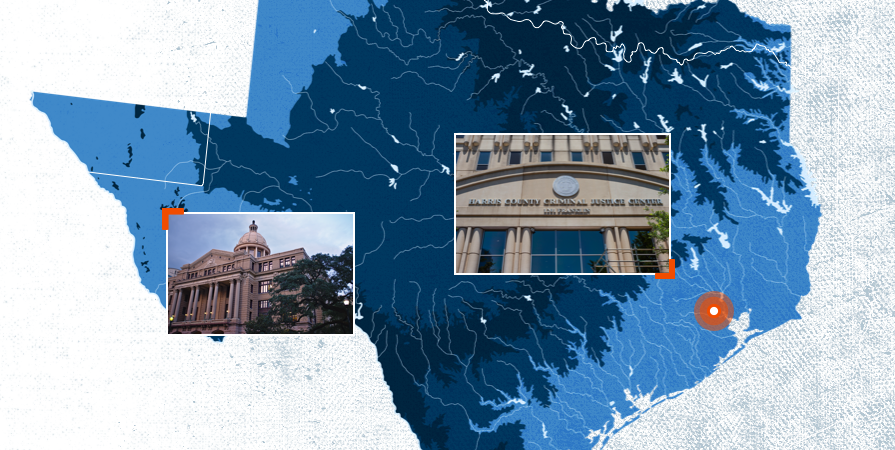Background
Harris County operates one of the largest jails in the U.S.
At the time of joining the Safety and Justice Challenge, 20% of pretrial detainees in Harris County were charged with low-level, nonviolent felony offenses, such as drug possession and theft, and often posed little to no risk to public safety. People of color were and continue to be over-represented in the jail. When Harris County joined the Challenge, 51% of people in jail for low-level, nonviolent felony offenses were Black people, and 21% were Hispanic.
Nearly 70% of offenders who were placed in pretrial detention and charged with a low-level, nonviolent felony ended up reoffending and cycling back through jail.
Twenty-nine percent of individuals held in Harris County for a misdemeanor had a documented mental illness.

